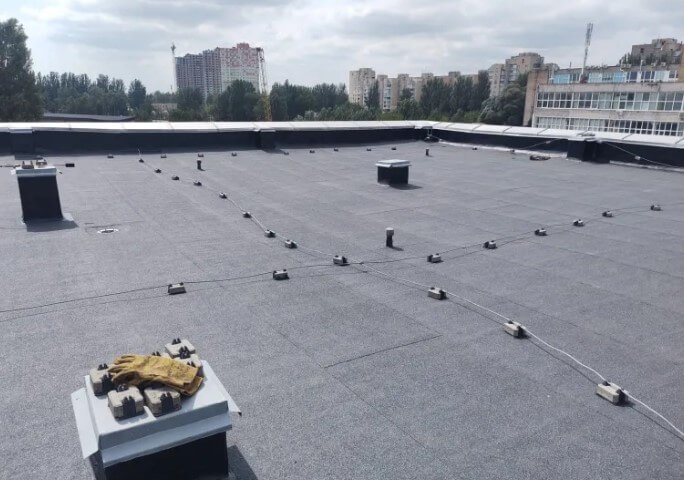The roof is one of the most important elements of any building, and choosing the right roof material is essential to protecting the building and its occupants from the elements and other weather conditions. Flat roofs and metal roofing have become popular choices for many buildings, but they don't always fit all conditions. In this article, we will look at metal roofs on flat roofs, their alternatives and the advantages of each option.
Metal roofs on flat roofs: advantages and disadvantages
Advantages:
Strength and durability: Metal roofs are made from high quality materials that ensure a long service life. They are resistant to UV rays, corrosion and weathering.
Easy to install: Metal panels are relatively easy and convenient to install, which can reduce the cost of labor force and installation time.
Energy Efficiency: Metal roofs can be equipped with thermal insulation and reflective coating, which helps to reduce heat loss and heating and air conditioning costs .
Fire resistance: Metal is a non-combustible material, which makes metal roofs more resistant to fire.
Disadvantages:
Cost: Metal roofing can be more expensive than other roofing options such as roofing membranes or roll materials.
Vibrations and noise: During rain or hail, a metal roof can create a higher noise level, which can be disturbing for building occupants.
Thermal Conductivity: Metal can be a good conductor of heat, which can lead to uneven heat distribution within a building if adequate thermal insulation is not provided.
Alternatives to metal roofing on flat roofs
Bitumen roofing: Bitumen shingles are popular an alternative to metal roofs on flat roofs. It provides good protection against moisture and weathering, and also has a lower cost compared to metal coatings.
Commercial membrane: Elastomeric membranes such as like EPDM, TPO and PVC are becoming more popular for flat roofs. They have excellent air tightness, UV resistance and good thermal insulation.
Green Roof Systems: Green roofs are becoming more and more popular in urban environments. They include a layer of vegetation that helps improve insulation and water retention.
The Benefits of Alternatives
Economical: Some alternatives may be more affordable than metal roofing.
Noise reduction: Alternative materials , such as shingles and membranes, can reduce noise from rain and other atmospheric agents.
Water resistance: Many alternatives provide good water protection and prevent leaks.
Conclusion
The choice between metal roofs and their flat roof alternatives depends on a variety of factors, including budget, climatic conditions, aesthetic preferences and energy efficiency requirements. Metal roofs offer high strength and durability, but can be more expensive. Alternatives such as shingles and membranes may be more affordable and provide good moisture protection. When choosing a roofing material, it is important to turn to professionals and take into account all the features of your particular roof and the needs of your building.




